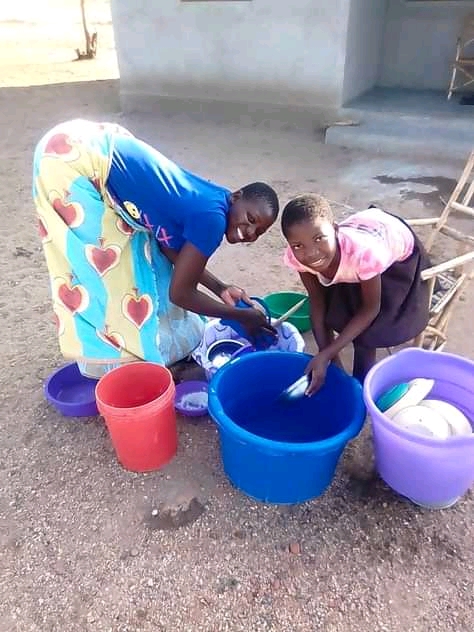By: Ollus Ndomu
House chores are still regarded as sex roles for the female folk across the African continent. Girls between the ages 15 and 17 spend nearly twice the amount of daily time cooking, cleaning, washing and running errands. Contrary, boys have more time for movements, leisure and spend uncountable time on screens. This is a gender gap that is dwarfing a girl child’s educational aspirations and achievements.
This gender gap in doing chores between boys and girls of the same age mirrors a society where male dominance is a norm.
According to a sex educator and author, Deborah Roffman, this social problem starts long before the teenage years and finds its roots in culture.
“Most of what we communicate with our children and other people about gender is unconscious,” Roffman said. She observed that newborn boys and girls are held differently, spoken to differently, and played with differently, even if parents are trying to raise them in gender-neutral ways.
Kate Haulman, a professor of history at American University says, this phenomenon is not new. Haulman is the co-curator of an exhibit on the history of women’s unpaid domestic labor in the U.S. called “All Work, No Pay,” currently on view at Smithsonian National Museum of American History.
“This dynamic goes back a couple of hundred years,” Haulman said. Women and girls’ domestic work is mostly invisible, and “has endured despite women’s gains in the paid workforce.”
This dynamic among many ways passes down from parents to children through lowered expectations of men and boys. From tender age, girls are taught that they are natural caretakers whereas boys are taught that they are not.
A prominent blogger named Barker says:
“It’s easy for us to fall into learned incompetence,” Barker said. “If I sit back and a woman changes the diaper of my newborn daughter, it’s easy for me to say ‘I don’t know how to do that, it’s messy anyway, and I don’t want to.’” This bleeds negative effects that affect all genders, including boys and men, who are taught that fathers are “deficit parents,” unable to fully care for people in the way mothers can.
African communities still take girls and women in general as workers whose domestic efforts are unpaid. It is an undisputable fact that a girl or woman cannot marry if they cannot cook, wash, clean and care for children. In extreme cases, barren women are divorced or never find marriage at all. These are gender disparities that are instilled in children when they are young.
Speaking to different young people across Central Africa, AfricaWorld News learned that there are many ways parents can push back gender disparities in housework. Paraphrasing the words of Haulman, Vesla Kals, a femay Zambian based in UK said “Parents must treat children and adults as humans with a range of abilities and interests rather than just immediately as gendered beings.”
Another interviewee, a parent from South Africa, Vest Khumalo said, “we must focus on raising the right kind of person rather than the right kind of boy or girl. His words resonate with Roffman who wrote, “If we can emphasize and name–regardless of our children’s gender–values like empathy and accountability and respect.”
This is the approach we could use to start challenging harmful gender practices that young people are exposed to every day.
Nancy Kaponda, a student nurse from Zambia, Rusangu University added her voice on the matter and said:
“We have to realize that boys too have the capacity to do chores, they can do this, and we need them to do this.”
On the other hand, Doreen Hamwiinde, a Zambian student observed that, “House chores should be mainly for girls because they need to do them when they get married and boys should take the role of helping.”
Given the views above and other untranscribed interviews, gender disparities in doing housework or chores must be addressed. Girls and women are people too. They need free time to read, time for leisure and rest.
Society will never be a better place if responsibility is not instilled in boys. Boys today are men, husbands and fathers tomorrow. In the midst of widespread urbanization in Africa, attaching the gender notion to housework means no good. The farms urban boys can work on are house cleaning, washing, cooking and maintaining the surrounding. African parents should rethink housework allocation.


